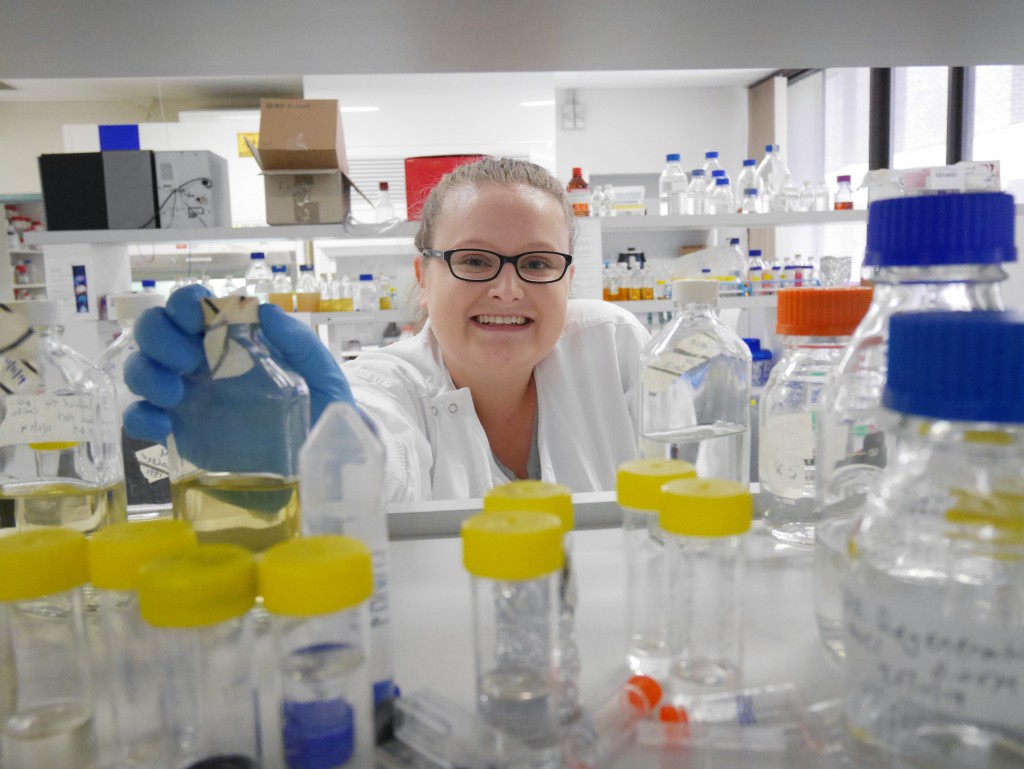PhD student Tahlia Bastholm and her co-supervisor Dr Joshua Ramsay have received a handy funding boost from the Curtin Health Innovation Research Institute to take their collaborative research abroad.
CHIRI will provide a small grant to support Tahlia’s travel to the University of Oxford in the United Kingdom to collect additional data for their research, learn a new experimental method and further strengthen their ties with their UK collaborators.
The team is studying how bacteria communicate with each other through chemical signalling called quorum sensing.
“This project has already allowed us to build a strong collaborative network with research groups at Murdoch University, The University of Western Australia, the University of Otago in New Zealand, and the University of Nottingham in the UK,” Tahlia said.
“Funds from the CHIRI-Hands-Up-Support Scheme will allow us to further investigate the roles of this particular quorum sensing system in bacteria, and strengthen collaboration with yet another prestigious research institute.”
Tahlia explained the significance of the research to CHIRI’s focus on age-related diseases.
“Bacterial infections can affect anyone in the community, and can be severe and even life threatening especially in elderly and immunocompromised patients,” Tahlia said.
“Understanding the mechanisms behind bacterial communication could give us insight towards combatting the pathogenicity or antibiotic resistance of infection-causing bacteria.”
Bacteria communicate with their own species, or even other bacteria in their environment, and use this communication to control a variety of features such as virulence, sharing genetic information and antibiotic resistance. The team has identified a new set of quorum sensing genes that seems to be an evolutionary combination of two distinct systems, and is currently characterising the chemical molecules produced by this new system.
Tahlia’s PhD is co-supervised by Dr Jason Terpolilli from Murdoch University and Professor Clive Ronson from the University of Otago in New Zealand.
CHIRI Director Professor John Mamo said “forming strong collaborations is an important part of research and Tahlia was considered a very worthy recipient based on a strong proposal she put forward”.
“Sharing expertise, learning new methods and collecting additional data are all things that can strengthen the quality and impact of research and enhance the experience of a research team,” Professor Mamo said.
“I am particularly excited to see this opportunity present itself to our PhD student Tahlia, who is in the early stages of her research career and who, like her research, is sure to gain so much from the experience.”
